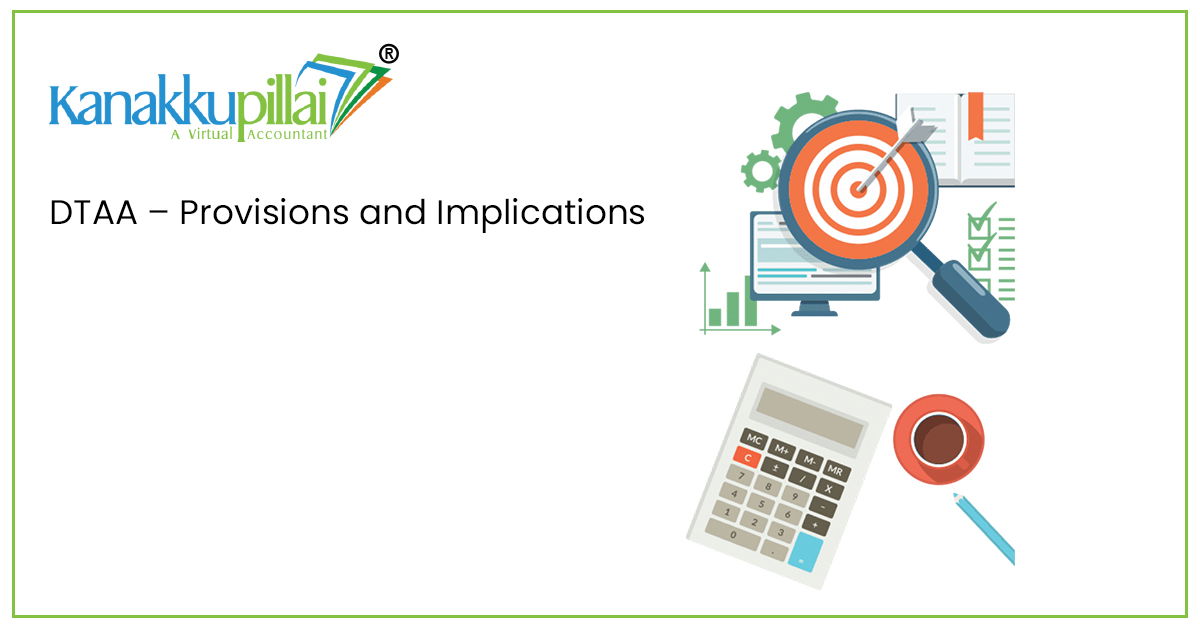DTAA – Provisions and Implications
The DTAA or Double Tax Avoidance Agreement is an arrangement that is brought in for helping the NRI’s (Non-Resident Indians) avoid paying double tax on the income which is earned by them in India. An NRI who is earning income in India would attract tax on such income in India and in his country of residence also. And this makes the tax payment double, on the same amount of income which is increasing the tax burden of the assesse.
This taxation requirement on the income earned in two countries arises from two basic rules that enable the country of residence as well as the country where the source of income exists to impose a tax on such income. And these rules are as given below:
Source Rule:
This rule states that the income earned should be taxed in the country of its origin irrespective of the residential status of the taxpayer.
Residence Rule:
While this rule states that the power to tax should be vested with the country in which the taxpayer is residing.
What is DTAA?
The DTAA or the Double Taxation Avoidance Agreement is a treaty that is signed between two countries. This helps a country look attractive as a destination which enables NRIs to get relief from ending up paying any double tax on the same income. But it is to be noted that this does not allow any assessee to avoid total payment of taxes but only provides certain relief pertaining to the Income Tax Act and the clauses of the treaty being signed by two countries.
So, we can say that a Tax Treaty like DTAA is a tax treaty, and this is a formally concluded and ratified agreement between two independent nations (bilateral treaty) or over two nations (multilateral treaty) on matters that are concerned with taxation normally in written form.
Rates of DTAA
India has signed the DTAA with many countries which specifics a fixed rate at which tax should be deducted from the income which is earned in India and remitted to such NRIs. This shall be deducted in the form of TDS at the rate which has been pre-set in accordance with the DTAA that was signed by India with the country of residence of such NRI. Following are some examples of such DTAA rates set by India with other countries:
| COUNTRY | RATE OF DTAA (%) |
| United States of America (USA) | 15 |
| United Kingdom | 15 |
| Canada | 15 |
| Australia | 15 |
| UAE | 12.5 |
| New Zealand | 10 |
Types of Income included under DTAA
Following are the incomes which are included under the DTAA, on which NRIs would be provided relief from paying double tax:
– Services which are provided in India
– Salary received in India
– House property Income from HP located in India
– Gains which is Capital Gains that is made on transfer of assets located in India
– Income earned from the fixed deposits in India
– Savings bank account in India.
Income Tax Provisions on DTAA
Section 90 of the Income Tax Act empowers the Government of India (GOI) to enter DTAA for avoiding double taxation.
If a person who is an Indian resident during any relevant previous year, in respect of his income, which accrued or arose outside India has paid tax on income in a foreign country that is a country which is located outside India, he shall be entitled for deduction from the Income Tax payable by him of a sum that is computed on such doubly taxed income, under:
– Section 90, which states that, if the foreign country in which tax is paid by the assessee has entered double taxation avoidance agreement with the Government of India.
– Section 91, which is stating that, if the foreign country in which the assessee has paid the income tax has formed any agreement with the Government of India.
For calculating this, the relief should be taken as the lower of the following:
i) Tax paid on double-taxed income outside India, or
ii) Tax payable on double-taxed income under Income Tax Act.
While in accordance with or referring to Section 90A, GOI can take in an agreement that is entered into between specified associations in India and specified associations in the specified territory outside India.
There are majorly two types of DTAA Agreements, and this includes:
– Comprehensive Agreements
– Limited Agreements
The comprehensive agreements are those, the scope of which are not limited and shall be addressing all sources of income, while in case of the limited agreements the scope would only cover:
– Income derived from the Operation of Aircrafts & Ships
– Estates
– Inheritance
– Gifts.
Procedural Requirements
For earning a relief from payment of double tax, the following documents shall be furnished by the assessee:
- i) Tax statement from the country or a territory prescribed and is outside India declared by the assessee for the relevant previous year and a copy of such evidence regarding the payment of foreign tax and deducted on such income in the form namely, Form 67 prior to the due date of filing of ITR or the Income Tax Return.
- ii) A statement or certificate specifying the nature of income earned and amount of tax deducted or paid thereof:
– From the department of tax or the tax authority of the country or the specified territory which is outside India,
– From the person who is responsible for such deduction
– Which shall also be signed by the assessee.
A signed statement by Assessee is valid only if it is accompanied by proof of deduction of tax or online payment of tax made by him in such another country.





